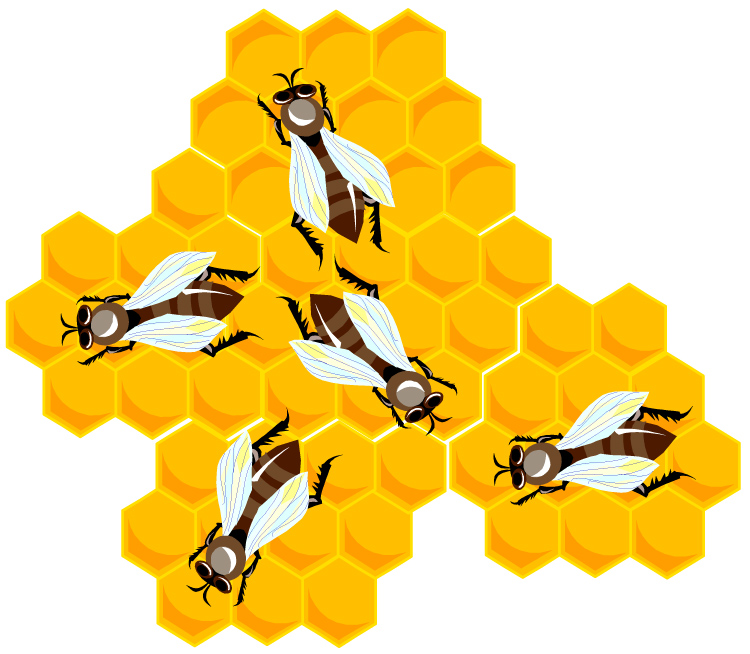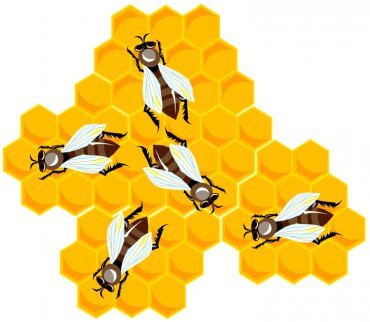Queen Bee | Mary’s Farm
Last fall, a young man who lives nearby knocked on my door. He wanted to know whether he could keep his hives in my field. He explained that his bees, living on the side lawn of his house, near the woods, had died. He didn’t know why. He thought they might do better in my […]

clipart
 Last fall, a young man who lives nearby knocked on my door. He wanted to know whether he could keep his hives in my field. He explained that his bees, living on the side lawn of his house, near the woods, had died. He didn’t know why. He thought they might do better in my open fields. I’d read that bees weren’t doing well anywhere. Whole hives were dying. Mystery surrounded the subject. Pretty soon, there were two white boxes of bees sitting silently at the edge of my east meadow, an air of expectation surrounding them.
Last fall, a young man who lives nearby knocked on my door. He wanted to know whether he could keep his hives in my field. He explained that his bees, living on the side lawn of his house, near the woods, had died. He didn’t know why. He thought they might do better in my open fields. I’d read that bees weren’t doing well anywhere. Whole hives were dying. Mystery surrounded the subject. Pretty soon, there were two white boxes of bees sitting silently at the edge of my east meadow, an air of expectation surrounding them.
Once, years ago, I rode north in the middle of a June night with a man who kept his bees in the Maine wilderness through the summer. He called his honey “Wilderness Honey,” and he had customers who waited all year for the sweet jars he provided in the fall.
We left New Hampshire at dusk and drove through the night. Every once in a while, he’d pull off to the side of the road, and, in the silent darkness, he’d get out and walk around the fenced trailer, which carried more than a dozen hives, checking on his bees. They were asleep, which is why we were driving in the middle of the night — so the bees wouldn’t know they were being taken hundreds of miles from where they’d slumbered through the winter.
He taught me a lot about bees on that trip — about the queen and her life inside the dark hive, about the worker bees who come and serve her willingly, collectively making millions of trips each season to gather the nectar, carrying it to the hive before they die an early death, many within weeks. The queen lives on. The bees inside their hives are the epitome of community, all love and cooperation. Servitude as well.
We arrived at his paradise beside the West Branch of the Penobscot in time for breakfast — eggs and bacon, toast and honey — which he rustled up on the wood-fired cookstove inside the cabin. And then he set the bees loose into the cool wilderness, where life was just emerging. All summer, they would work the pollen loose from the tiny wildflowers of the deep woods.
The bees in my meadow had an easier time. As spring grew into summer, the moisture from the meadow rising, I saw them working the lilacs and the bleeding heart. Full summer, hot as a griddle, I found them suspended in the blueberries and hanging like small jewels from the frilled clover blossoms. When I was in my garden, near the hives, I could see the bees exiting and entering, exiting and entering, a little industry in my meadow. Once in a while, the young man would come, park his truck near the hives, get out, and pull on his bee suit, hood, and protective gloves. Like a moonwalker, he’d plod to the hives, anesthetize his friends with his smoker, and work the trays. It was a dreamy pageant — the bees in their boxes, the man who came and went, keeping them happy, the meadow alive with their beating wings.
One day I came home from work to find a plump jar on the table on my porch. The setting sun lit up the contents, creating a little sun of its own. I took the honey inside, suddenly feeling like a queen.
Edie Clark’s newest book, Saturday Beans & Sunday Suppers, is available at: edieclark.com

